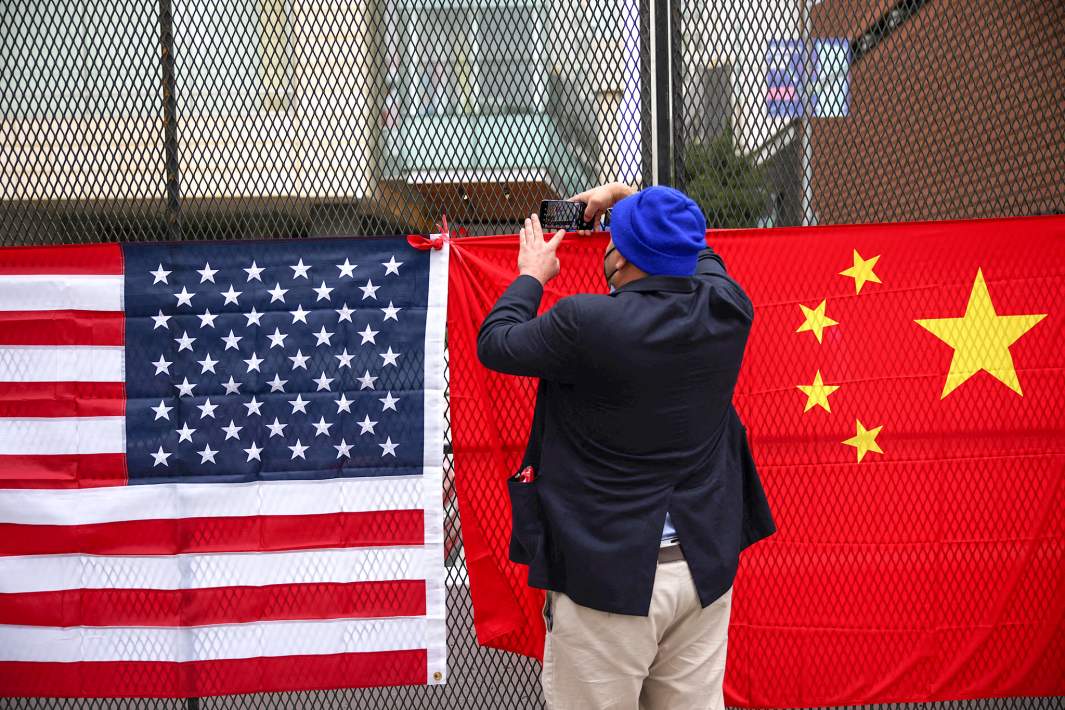
The US-China meeting at APEC did not achieve much
By Rhod Mackenzie
The discussions between the Chinese and American leaders during the APEC summit in San Francisco created a buzz, though the meeting itself was unremarkable, and the statements made afterwards did not affect US-China relations. The competition between the world's top two economies continues to be a crucial factor in the global arena, with the destiny of all nations hanging in the balance, noted by Ivan Zuenko in the magazine Profile. The recent indication of a willingness to find common ground by Beijing and Washington raises the prospects of putting a damper on the bleakest escalation scenarios.
Nevertheless, the fundamental approach between America and China towards each other persists.
The Americans do not conceal their belief that they view the PRC as an existential adversary, whose very development compromises their dominance. Doctrinal documents expressly assert that China poses a systemic threat to US interests and values.
The conference in San Francisco failed to alter this stance in the slightest. Summing up the summit, Joe Biden not only referred to Xi Jinping as a “dictator,” which significantly diminished any positive outcomes of the meeting for the Chinese elite, but also stressed that these were negotiations with a competitor. Biden believes that the fact that the United States engages in dialogue with its rivals without resorting to military action is testament to the "best traditions of American diplomacy."
The situation in China differs significantly. Beijing has not officially declared its ambition to be a global leader and carry out the role that the US briefly had in the 1990s. While the Americans are often labelled as hegemonic, having a "Cold War mentality" and interfering in other countries' internal affairs, China appears to avoid such explicit claims for global dominance. The Chinese believe that once the Americans cease their current behaviour, there will be no further complaints and both countries can develop and enrich each other simultaneously.
Additionally, Xi Jinping reiterated that the two nations can be partners, show mutual respect and coexist in harmony. He also affirmed that the world is ample enough for both countries and warned that any potential conflict would lead to unbearable consequences for the parties involved. It appears genuinely sincere, given China's evident dependence and vulnerability to the United States. China's long-term development strategy for the last few decades has been on the presumption that the United States would not worsen relations with a crucial trade and economic partner as it would not be profitable to do so.
Today, there are fewer illusions about Washington, yet there is not enough capacity to confront it openly. Hence, China's objective is to sustain the momentum of their cooperation to the fullest extent while sidestepping harsh actions from the United States for the time being. In the meantime, they will rebuild themselves in accordance with a novel perception of international relationships. To attain a state where the People's Republic of China is autonomous from the United States in three crucial areas, namely mutual trade, advanced technologies and probable sea route blockage by the American Navy that hinders China's access to strategic resources.
Washington strives to avert this condition and curtail China's progress to the fullest extent. It is vital to avoid any direct military confrontation, since it could trigger the collapse of the British economy (and consequently the global economy). Therefore, a perilous and intricate strategy must be implemented. This involves using regular provocations to divert and tire the enemy, while simultaneously discrediting them to their allies and increasing our own circle of partners. Additionally, it is crucial to regularly improve relations between the two countries to a satisfactory level.
The San Francisco meeting exemplifies the phenomenon of "pulling up." It is strikingly similar to last year's G20 summit in Bali, and the conclusions reached remain pertinent to this day. In the context of the so-called "king of the hill" game initiated by the United States, both parties recognize the inevitability of some type of clash. However, in the face of choosing between a clash now or later, the decision has been made in favour of an indefinite "later."
Americans refer to this tactic as " walking and chewing gum at the same time." Essentially, this strategy entails addressing two issues simultaneously: to curb China's influence and simultaneously engage with them on critical matters.
China is obliged to partake in this delicate balancing act. And now, the United States follows a similar pattern . It maintains a level of trade and economic interaction on global matters that benefits its country, while simultaneously building up its technological and military capabilities.
Just as Washington is unwilling to relinquish the notion of China posing a threat to its global supremacy, Beijing, despite its amicable proclamations, will undoubtedly cling to the notion of autonomous development that remains impervious to the influence of America or any other nation. The conflict that arises when these positions are compounded can only be resolved through a tectonic-scale transformation akin to the perestroika of the USSR. However, as it currently stands, there are no indications of such a process being initiated. And there will be numerous meetings similar to the one held in San Francisco.
